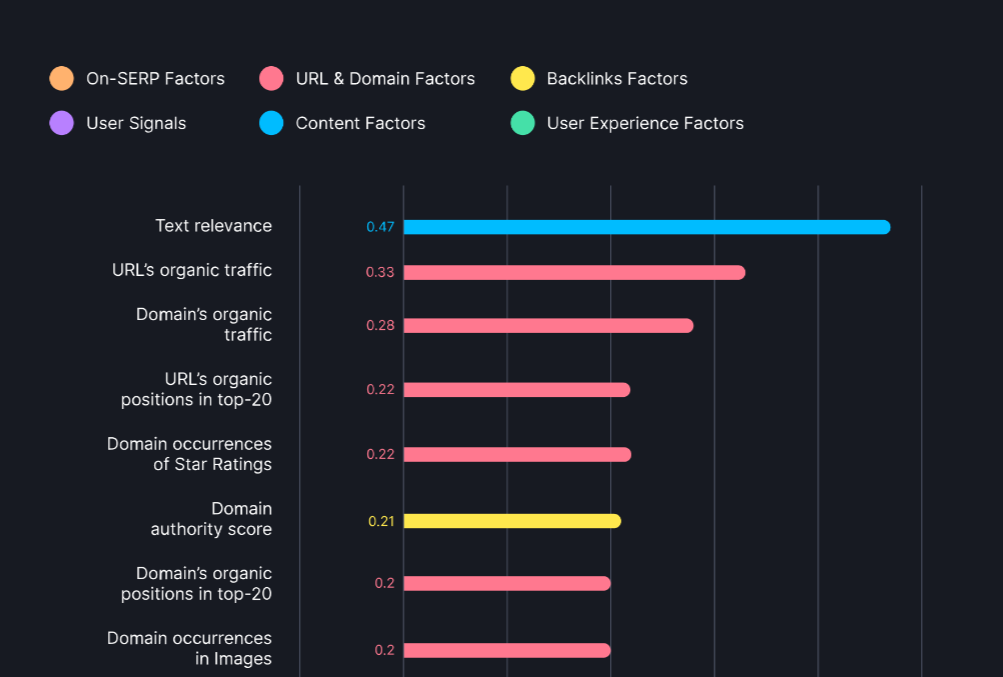Are you in search of a comprehensive guide on how to escalate your WordPress website’s visibility in search engine results? Welcome to our ‘SEO WordPress Guide: Optimizing Your Website for Better Rankings’. This guide will take you through the essentials of SEO WordPress, a fundamental strategy to enhance online visibility, organic traffic, and overall performance of your WordPress sites.
As we delve into the world of SEO, you’ll learn how specific aspects like website speed and mobile optimization can drastically affect your site’s ranking. We will also touch upon the power of long-tail and LSI keywords in attracting targeted traffic and boosting conversions. Furthermore, we’ll explore effective on-page and off-page SEO strategies, including meta tag optimization, image optimization, guest blogging, and link building, all aimed at improving your site’s ranking and visibility.
So, gear up to uncover the secrets of SEO WordPress and learn how to leverage them to your advantage for better rankings!
Summary
Optimizing your website for better rankings is crucial for any WordPress site. The key to enhancing online visibility, driving traffic, and boosting site performance lies in effective SEO. By focusing on site speed and mobile optimization, which includes using lightweight themes and image optimization, WordPress sites can improve their search engine rankings and attract more organic traffic.
Incorporating long-tail and LSI keywords that align with your content and audience intent can further enhance visibility and drive targeted traffic. On-page optimization, such as optimizing meta tags and images, is another essential aspect of SEO that influences how your page is described in search results and improves your site’s visibility and ranking.
Off-Page SEO strategies, like guest blogging and link building, can significantly improve your site’s ranking, drive traffic, and generate leads, making SEO an indispensable tool for the success of any WordPress site.
Article outline
Understanding the Importance of SEO for WordPress Websites
Search Engine Optimization (SEO) is instrumental in enhancing online visibility, driving traffic, and boosting the overall performance of WordPress websites. By leveraging SEO, WordPress websites can achieve better rankings on search engine results pages (SERPs), thus increasing their potential to attract and retain a significant number of loyal visitors or generate leads. This section explores the importance of SEO for WordPress websites.
Increased Online Visibility and Traffic
Properly executed SEO strategies can significantly improve a WordPress website’s visibility. When a website is optimized for search engines, its chances of appearing on the first page of SERPs for specific keywords increase. A higher ranking correlates with more visibility, which potentially leads to more organic traffic. As highlighted in our article on the SEO evolution, SEO practices have changed dramatically over the years, but their goal remains the same: to improve visibility and drive traffic to websites.
Growth in User Trust and Website Credibility
SEO also plays a crucial role in building user trust and credibility. Websites that rank high on SERPs are generally perceived as more trustworthy and credible by users. The use of on-page and off-page SEO strategies helps in building authority, which is a critical factor for improving website credibility. It’s important to stay up-to-date with the latest SEO trends for WordPress websites to maintain and improve your site’s credibility.
In summary, SEO is vital for WordPress websites. It improves online visibility, drives traffic, builds user trust, and enhances website credibility. As the world of SEO continues to evolve, staying informed about the latest trends and practices is imperative for the success of WordPress websites.
Key Factors to Consider for Optimizing SEO on WordPress
When it comes to optimizing SEO on your WordPress website, there are several key aspects you need to consider. These factors are crucial to ensuring your website ranks well on search engine results and attracts organic traffic. They also contribute to the overall user experience, which is a critical factor in SEO ranking.
Site Speed and SEO
One key factor to consider is the speed of your site. Site speed plays a significant role in WordPress SEO optimization. A slow-loading website not only drives away visitors but also negatively impacts your search engine rankings. Google takes into account the speed of your site when determining its ranking. To optimize your site speed, you may need to use lighter themes, optimize images, and limit the number of plugins. For more information on this, you can refer to this in-depth guide on optimizing site speed for better WordPress SEO.
Mobile Optimization
Another crucial factor to consider is mobile optimization. With the majority of web users accessing the internet through mobile devices, having a mobile-optimized website is no longer optional. A mobile-optimized site not only enhances the user experience but also improves your SEO ranking. This is because Google uses mobile-first indexing, which means that it primarily uses the mobile version of a site for indexing and ranking. To master mobile optimization for WordPress SEO, refer to this comprehensive guide on mastering mobile optimization for WordPress SEO.
In conclusion, optimizing SEO on WordPress involves considering various factors including site speed and mobile optimization. By paying attention to these elements, you can significantly improve your site’s ranking on search engine results and attract more organic traffic.
Effective Keyword Research Strategies for WordPress SEO
Keyword research is an essential aspect of search engine optimization (SEO). The right keywords can drive targeted traffic to your WordPress site, increase visibility in search engine results pages (SERPs), and ultimately lead to conversions. Let’s explore some effective keyword research strategies for WordPress SEO.
Utilizing Long-Tail Keywords
Long-tail keywords are more specific than general keywords, and they’re typically longer. Because long-tail keywords have less competition, they can be a great way to rank higher in SERPs. To really see the benefits of long-tail keywords, you need to understand how to find and use them effectively. For a more detailed guide on mastering long-tail keywords for WordPress SEO, you might want to check out our previous article which thoroughly discusses the importance of ‘long-tail keywords WordPress’.
Understanding the Power of LSI Keywords
Latent Semantic Indexing (LSI) keywords are semantically related to your main keyword. They help search engines understand the context and relevance of your content. Incorporating LSI keywords in your content can enhance your WordPress SEO, as search engines may consider your content more comprehensive and relevant, which can improve your rankings. For an in-depth look at how to leverage LSI keywords in your WordPress SEO strategy, don’t miss our article that dives into the power of ‘LSI keywords WordPress’.
Remember, effective keyword research is not just about finding high-volume keywords. It’s about finding the right keywords that align with your content and audience’s intent. By incorporating long-tail and LSI keywords into your strategy, you can improve your WordPress site’s visibility and drive more targeted traffic.
On-Page Optimization Techniques for WordPress Websites
On-page optimization constitutes a crucial aspect of your overall ‘SEO WordPress’ strategy. It involves optimizing individual web pages on your site, including the content and HTML source code, to rank higher and earn more traffic from search engines.
Meta Tags Optimization
Meta tags act as a primary communication tool with search engines. They provide information about your content and influence how your web page is described in search engine results. In WordPress, you can easily update your meta tags using SEO plugins. Appropriate use of meta tags can significantly improve your webpage’s visibility. For a detailed guide on mastering meta tags for WordPress, consider reading our dedicated article on meta tags WordPress.
Image Optimization
Images can heavily impact your site’s loading speed, a key factor in user experience and SEO. Compressing and resizing your images, using appropriate file types, and adding alt text for search engines are some ways to optimize images on your site. Alt texts are also a great place to include your target keywords. Discover more about image optimization in WordPress with our article on image optimization WordPress.
In summary, on-page optimization is an essential step in your SEO WordPress strategy. By effectively applying meta tags and optimizing images, you can improve your site’s visibility and rankings in search engine results pages.
Off-Page SEO Tactics to Boost Rankings for WordPress Sites
“Off-Page SEO involves optimizing elements outside of your website to improve your search engine rankings and visibility. These tactics, when effectively integrated with your WordPress site, can significantly boost your website’s standings and attract more organic traffic.
Guest Blogging: A Potent Off-Page SEO Tactic
Guest blogging is a highly effective off-page SEO strategy that involves writing and publishing content on other websites or blogs. It’s not just about getting backlinks; it’s also about building relationships, increasing brand awareness, and driving targeted traffic to your site. If executed correctly, guest blogging can yield impressive results for your WordPress site’s SEO. To master the art of guest blogging for off-page SEO on WordPress, read this detailed guide on guest blogging WordPress.
Link Building: An Essential Off-Page SEO Strategy
Link building is another vital off-page SEO tactic that can significantly boost your WordPress site’s search engine rankings. It primarily involves getting external websites to link to your site, thereby signaling to search engines that your content is valuable and worth ranking high. A successful link-building strategy can increase your website’s domain authority, improve your search visibility, and drive more referral traffic. To learn more about effective link-building strategies for off-page SEO on WordPress, check out this comprehensive guide on link building WordPress.
In conclusion, off-page SEO is just as crucial as on-page SEO in a comprehensive ‘seo wordpress’ strategy. By leveraging strategies like guest blogging and link building, you can significantly improve your WordPress site’s search engine rankings, attract more traffic, and ultimately, generate more leads.
”Conclusion
Optimizing SEO for WordPress websites is crucial in enhancing online visibility, driving traffic, and improving site performance. Prioritizing key aspects such as site speed and mobile optimization, as well as effective keyword research, can significantly improve your site’s ranking and attract more organic traffic. Furthermore, on-page optimization techniques such as meta tag optimization and image optimization enhance visibility and ranking in search results. Off-page SEO strategies like guest blogging and link building also play a pivotal role in boosting site ranking, increasing traffic, and generating leads. By keeping up with the latest SEO trends and practices, you can ensure the success of your WordPress site in this digital age. Always remember, a well-optimized SEO WordPress site not only increases visibility but also builds user trust and site credibility.

